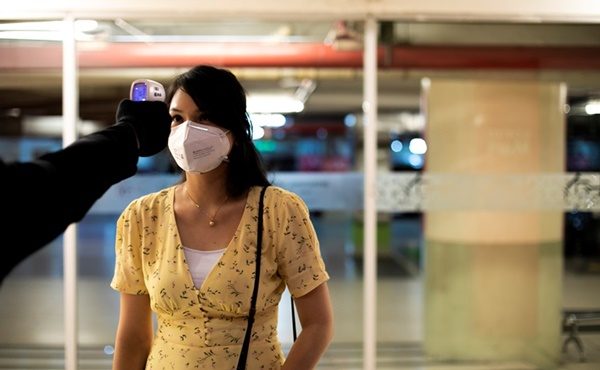As the Covid-19 pandemic rolls on, shopping mall operators are facing a two-pronged challenge. They need to find ways to encourage shoppers to visit their facilities while at the same time ensuring they remain free of the infectious virus.
This is not an easy balance to achieve. Shopper numbers need to be at levels that make opening malls viable, but measures must also be in place to ensure the chance of spreading the virus is minimised.
To date, the focus has been on social distancing, wearing masks and cleaning hands. You can’t enter a shop these days without encountering warning signs and a highly visible anti-bacterial liquid dispenser.
However, there’s another measure that increasing numbers of mall operators are adopting: temperature checks. Identifying anyone with an above-normal temperature means they can be prevented from entering the facility, reducing the chance that others may become infected.
According to the World Health Organisation, 88 per cent of people infected with Covid-19 will exhibit an elevated temperature. This means checks can provide an accurate indication of whether someone should be allowed to visit a mall or told to return home.
Scanning a crowd
When it comes to taking a person’s temperature, medical staff often opt for a handheld scanner. Aimed at an individual’s forehead, they emit an infrared beam that can quickly and accurately measure skin temperature.
However, while these devices are useful for individuals or small groups, they become less practical for crowds. Expecting large numbers of people to queue for scanning at the entrance to a shopping mall is simply not going to be practical.
A better approach is for mall operators to deploy thermal imaging cameras at the entries to their facilities. Rather than requiring people to stop for a manual check, the cameras can scan them as they walk past.
Some thermal imaging cameras can scan as many as 30 people a second and automatically display their body temperature on a computer monitor. Audible and visual alerts triggered by a high reading can prompt staff to approach the shopper and prevent them from entering.
Beyond health benefits
As well as helping to protect shoppers and staff from the virus, deploying such technology delivers other benefits to mall operators.
A viral outbreak that can be traced back to a large shopping facility would likely result in severe reputational damage. Just as cruise ship operators have discovered, once public trust is lost, it can remain lost for an extended period. Taking preventative steps such as deploying infrared temperature screening equipment can help to reduce the likelihood of such reputation hits occurring.
Some screening cameras can also be linked to facial recognition systems. This means that, as well as monitoring the temperature of people entering a facility, they can also monitor for individuals who have previously been barred.
The steps mall operators should take to ensure an infrared temperature screening system will help to protect their facility include:
Assess entries: Evaluate all entry points to the mall and determine whether some can be temporarily closed. Reducing the number of points that need to be monitored will keep monitoring costs down.
Evaluate technology: There are a number of competing systems on the market, so it is important to select the system that is most appropriate for your particular facility. Consider the number of people needing to be scanned and ensure it can cope with that level of foot traffic.
Train staff: Although the technology can automatically detect high temperatures and sound an alarm, staff still need to be familiar with its operation to ensure it is correctly calibrated and delivering accurate results. Effective training will ensure this occurs.
Customer communication: It will be important for shoppers to understand the measures that have been put in place, how they work, and the benefits they deliver. Communicating these points to them will help to encourage them to spend time (and money) in the mall.
It’s likely that Covid-19 will continue to cause disruption for many months to come. By taking steps such as deploying temperature checking equipment within their facilities, mall operators can ensure their retail tenants are as well placed as possible to continue opening their shop doors.
By Jeremy Ducklin, managing director at Congress Rental
This article first appeared on retailbiz







